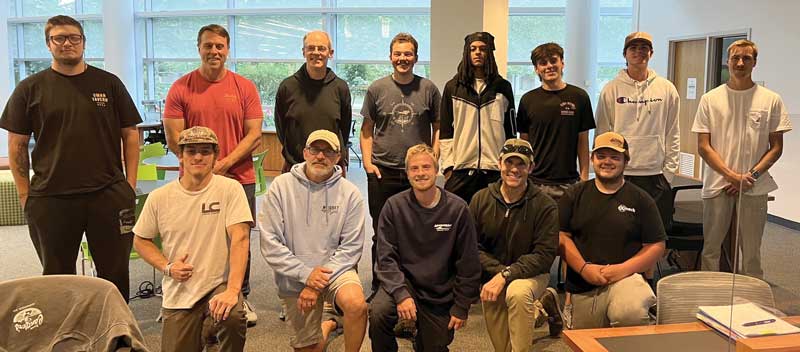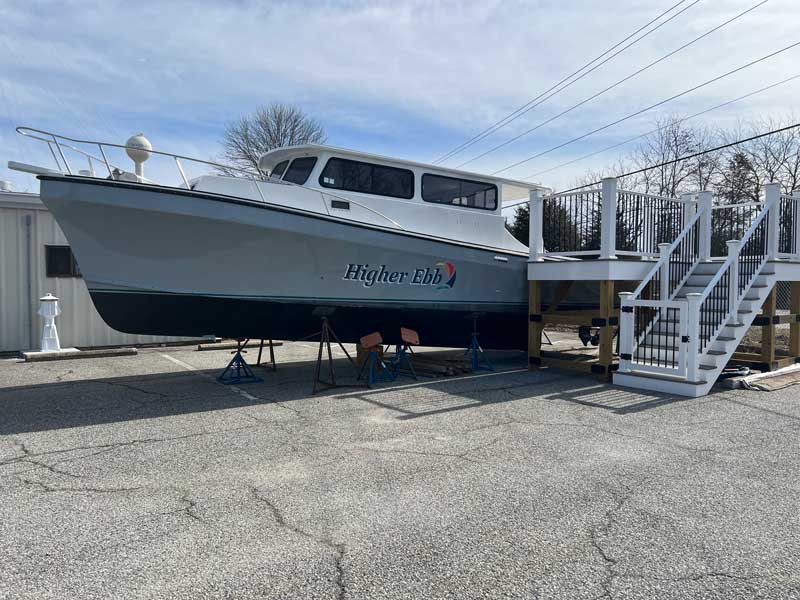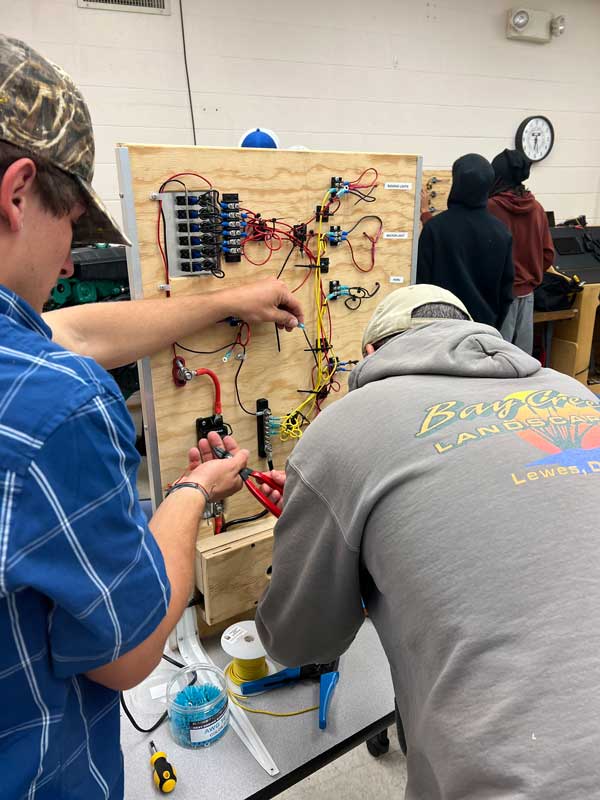Imagine a classroom whose students include Eastern Shore high schoolers, a resident of Greenland, employees at local marinas, a former secret service agent looking for a new career, and a group of boat owners. The students’ ages range from teenagers to nearly 60 years.

What kind of class would draw such a diverse group? If you guessed a marine service technician course, you would be correct according to Erik Lostrom, instructor and marine trades service program coordinator at Chesapeake College in Wye Mills, MD. Lostrom recently told PropTalk that all these individuals were among the students in his latest class.
This exciting program is a product of Chesapeake College’s partnership with Yamaha and the Marine Trades Association of Maryland (MTAM) to offer a marine service technician program focused on outboard engine service and repair. The program prepares students for entry level positions as qualified marine service technicians with local and regional dealers, marinas, and repair facilities. During the course students learn about propulsion, materials, diesel engines, outboards, electrical systems, plumbing, and more. Coursework includes hands-on experiential learning in a state-of-the-art lab and stresses standardized, quality training that follows the American Boat and Yacht Council (ABYC) marine service technician entry level curriculum. Classes meet on Tuesdays and Thursdays from 6 to 9 p.m. for eight weeks.

Lostrom says, “Overall, approximately three quarters of our students are just getting started in the marine industry. We also enroll high school students (thanks to a dual enrollment program with Talbot and Queen Anne’s County high schools) and individuals who are changing careers. Some students are working as technicians and have been sent by their employers to gain a certificate. A certification enables them to do more, earn more, and climb the service technician ladder. Finally, we have students who are boat owners looking to do their own repairs or just become more knowledgeable about the repairs that they will hire someone else to complete.”
One such student, Kevin Griffin, tells PropTalk, “I cannot speak highly enough of the marine service technician program at Chesapeake College. Prior to enrolling in the course, I had been a recreational boater for about 12 years, relying on others for even the most minor repair. Since I enjoy working with my hands, and the marine service industry is strapped for qualified technicians (it can take weeks sometimes to get even the most minor repair completed), I hope I can use my skills to get the job done and get back on the water faster.”
Griffin continues, “Hands-down, the best part of the course was the instructor, Erik Lostrom. His ability to pull from the ABYC text important points to discuss and practically apply in classes and labs made the course what it was. Additionally, Erik arranged for three employers to come into class as guest speakers, demonstrating his desire to help initiate the steps for students to find and start employment in the industry.”

Lostrom says, “The industry can’t afford to lose recreational boaters simply because they cannot get quality work done in a timely manner. On the first day of class I explain to those who aim to become certified technicians that we are here to help make the customers’ dreams come true, and I incorporate conversations about ethics and communicating effectively with customers.”
Lostrom sees potential for expanding the program with other courses that teach cross-over skills such as welding, HVAC, and advanced manufacturing. Next spring semester he hopes to add courses in advanced electronics and composite repairs.
Lostrom knew from the time he was in high school that he wanted to be in the marine industry, and he is excited to share his life’s work with others. “Following my passion naturally led to interesting and challenging work,” he says. “After graduating from The Landing School in Maine [which prepares students for careers in the marine industry as designers, builders, systems technicians, and managers], I never had to look for a job; people sought me out. Today we have a shortage of skilled marine tradesmen, and I see this job as a great opportunity for me to give back to the industry and make a meaningful and lasting contribution to help it survive.”
Learn more at chesapeake.edu/program/marine-service-technician.